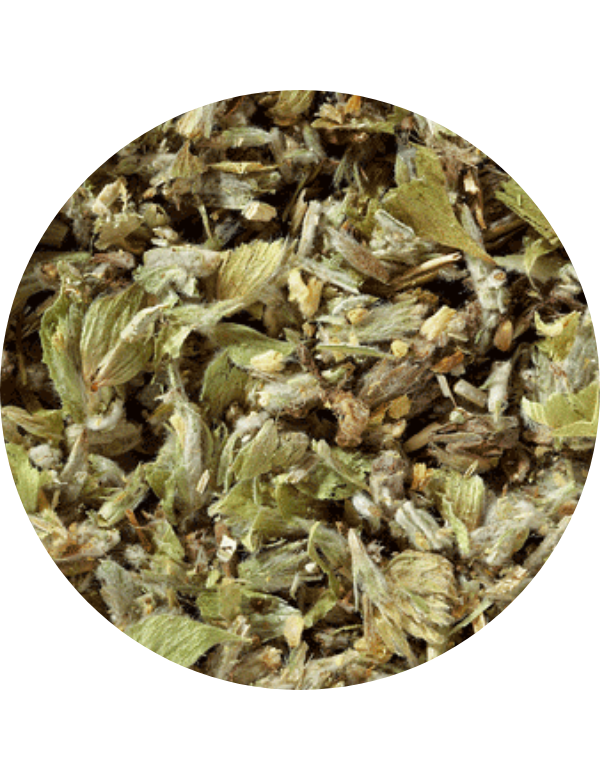



Worldwide there are roughly 150 types of dittany (family “Sideretis”) of which the vast majority grows in the Mediterranean region. The majority of these members of the labiate family grow wild, only some varieties are cultivated. Greek Mountain tea is rich in essential oils and its blossoms, stems and leaves set free the scent of fresh herbs with a hint of lemon when infused. The taste is fruity, tangy with a slightly spicy, earthy note and best enjoyed hot or cold and sweetened with a little sugar or honey.
Pregnant women should not consume it, as it can induce labor when taken in high doses.
How to prepare:
quantity: 1 - 2 teaspoons per cup
temperature: 100 C
brewing time: 5 - 10 minutes
Multiple infusion: no

Security policy

Delivery policy
Ingredients:
Greek Mountain Tea Cut
Greek mountain tea, also known as "Tsai Tou Vounou" or "Sideritis," is a traditional herbal infusion made from the Sideritis plant found in the mountainous regions of Greece. It has been consumed for centuries and is associated with various potential health benefits:
Antioxidant-Rich: Greek mountain tea is packed with antioxidants, including flavonoids and polyphenols, which help combat oxidative stress and reduce the risk of chronic diseases.
Anti-Inflammatory Properties: The bioactive compounds in Greek mountain tea may have anti-inflammatory effects, potentially aiding in the management of inflammation-related conditions.
Digestive Health: It is believed to have digestive benefits, helping to alleviate indigestion, bloating, and discomfort. It may also promote a healthy gut microbiome.
Immune System Support: The antioxidants and bioactive compounds in the tea may help strengthen the immune system, contributing to better overall health.
Respiratory Health: Greek mountain tea has been traditionally used to relieve symptoms of the common cold, respiratory congestion, and sore throat.
Mood Enhancement: Some compounds in the tea, such as flavonoids, may have mild anxiolytic (anxiety-reducing) effects, promoting relaxation and a sense of well-being.
Cognitive Health: Preliminary research suggests that Greek mountain tea may have cognitive benefits, potentially improving memory and cognitive function.
Anti-Microbial Properties: The tea contains natural antimicrobial compounds that could help combat bacterial and viral infections.
Heart Health: Some studies suggest that Greek mountain tea may have cardio-protective effects, helping to support heart health and reduce the risk of cardiovascular diseases.
Antioxidant Skin Benefits: The antioxidants in the tea may contribute to healthier skin by protecting against UV damage and promoting a youthful complexion.